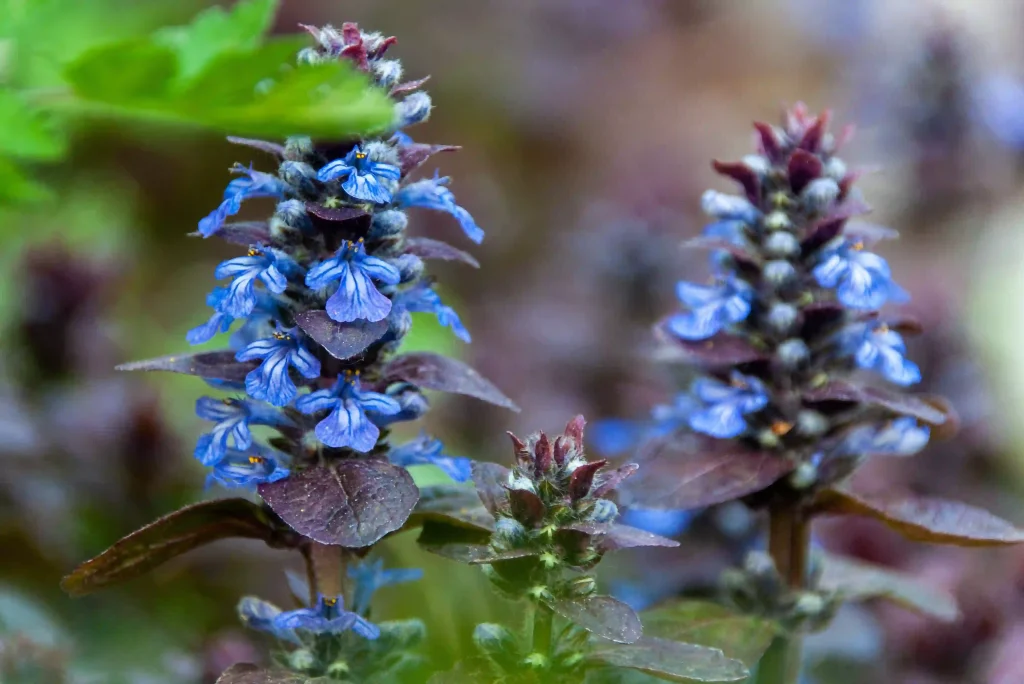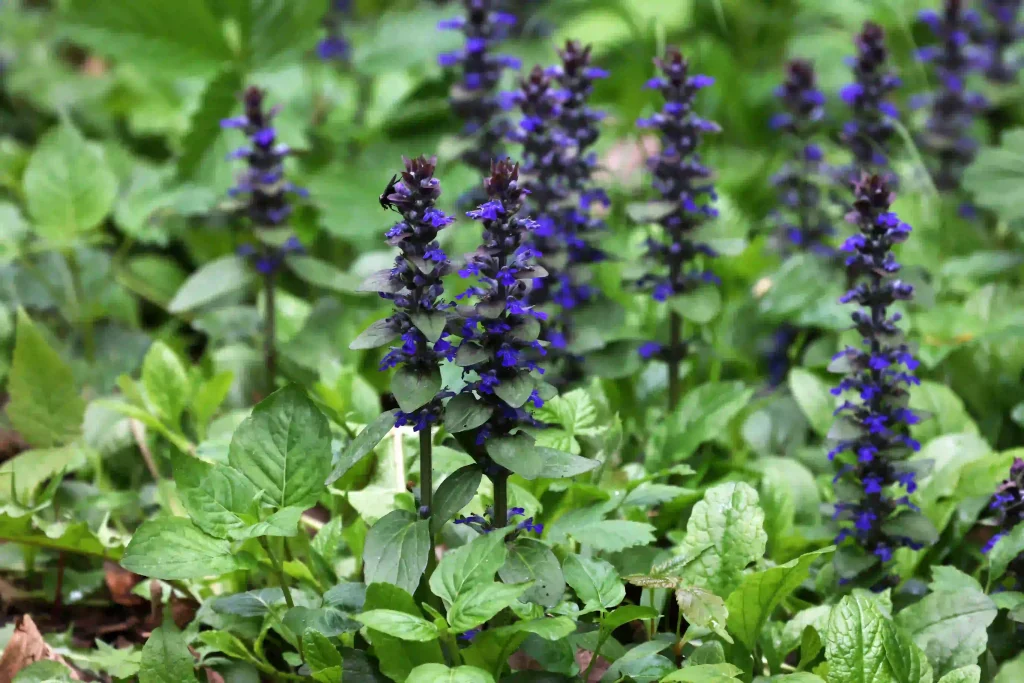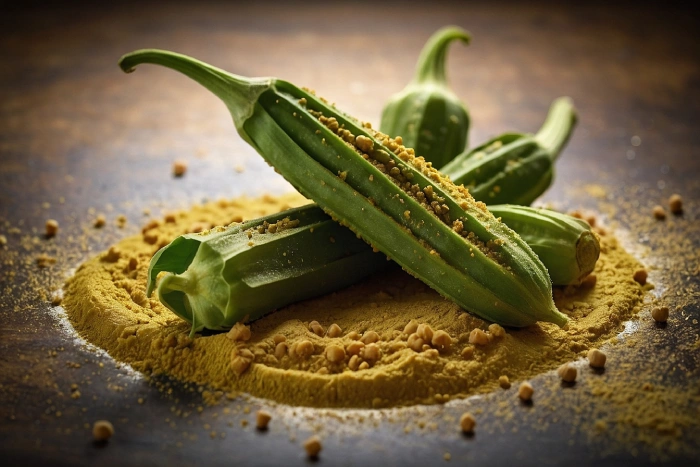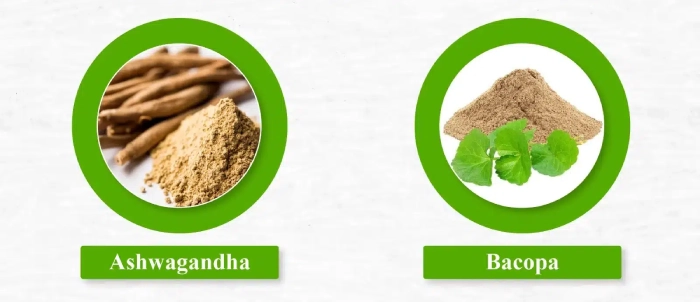In my decade-long journey exploring the fascinating world of botanical medicine and natural wellness, I’ve encountered countless herbs and plants that have left me in awe of nature’s pharmaceutical prowess. However, few have captured my attention quite like Ajuga, a remarkably versatile plant that seamlessly bridges the gap between traditional wisdom and modern scientific understanding. As a researcher and advocate for natural healing solutions, I’ve spent considerable time studying this unassuming yet powerful herb, and what I’ve discovered about its potential applications in contemporary healthcare has been nothing short of remarkable. Today, I’m excited to share my comprehensive findings about this extraordinary plant, which has been quietly revolutionizing both traditional and modern approaches to wellness.

The Fascinating World of Ajuga
The story of Ajuga is one that weaves together ancient wisdom, modern scientific discovery, and the endless possibilities of natural medicine. As I’ve delved deeper into understanding this remarkable plant, I’ve been consistently amazed by its adaptability and resilience, qualities that mirror its therapeutic potential in human health. This hardy perennial, known commonly as bugleweed or carpet bugleweed, belongs to the extensive mint family (Lamiaceae) and has been a silent contributor to both ornamental gardens and traditional medicine cabinets for centuries. What truly sets Ajuga apart is not just its widespread geographical presence, but its remarkable ability to thrive in conditions where many other plants struggle, demonstrating a resilience that parallels its therapeutic applications in human health maintenance and disease prevention.
Nature’s Ground Cover with Hidden Powers
When you first encounter an Ajuga plant in its natural habitat, you might be struck by its deceptively simple appearance – a dense carpet of deep green leaves punctuated by elegant spikes of blue, purple, or white flowers reaching skyward like natural sentinels. However, beneath this modest exterior lies a biochemical powerhouse that has captured the attention of both traditional herbalists and modern researchers. While many gardeners primarily value Ajuga seeds for their ability to transform troublesome bare spots in shaded areas into lush, verdant carpets, the true magic of this plant lies in its complex internal chemistry. Through years of scientific investigation and traditional use, we’ve discovered that Ajuga contains an impressive array of bioactive compounds, each contributing to its therapeutic potential in unique and sometimes unexpected ways. The plant’s biochemical profile includes a sophisticated blend of compounds that work synergistically to produce its beneficial effects.
Traditional Wisdom Meets Modern Science
The historical significance of Ajuga in traditional medicine systems spans continents and centuries, creating a rich tapestry of therapeutic applications that continue to intrigue modern researchers and practitioners alike. In my extensive research into traditional healing practices, I’ve discovered that various cultures have independently recognized and utilized the medicinal properties of this remarkable plant, albeit in slightly different ways. Chinese Traditional Medicine, for instance, has long valued Ajuga for its cooling properties and ability to support liver health, while European herbalists historically employed it as a gentle yet effective remedy for respiratory and digestive complaints. This cross-cultural recognition of Ajuga’s therapeutic potential speaks volumes about its genuine medicinal value, particularly when we consider how these different healing traditions developed independently yet arrived at similar conclusions about the plant’s benefits.
The Modern Research Landscape
Contemporary scientific investigation into Ajuga has yielded fascinating results that largely validate traditional knowledge while uncovering new potential applications. Through rigorous laboratory studies and clinical trials, researchers have identified several key mechanisms through which Ajuga extract exerts its therapeutic effects. One particularly intriguing area of research focuses on the plant’s anti-inflammatory properties, which appear to work through multiple pathways at the molecular level. Studies have shown that specific compounds in Ajuga can modulate inflammatory mediators, potentially offering a more nuanced and holistic approach to inflammation management compared to synthetic alternatives. The implications of these findings are particularly significant when we consider the role of chronic inflammation in many modern health challenges.
Blood sugar regulation is another area where Ajuga has shown promising potential. Multiple studies have investigated the plant’s ability to influence glucose metabolism, with some research suggesting that certain compounds in Ajuga might help improve insulin sensitivity. While these findings are preliminary and require further validation through larger clinical trials, they align remarkably well with traditional uses of the plant in managing diabetes-like symptoms. This convergence of ancient wisdom and modern scientific validation provides an exciting glimpse into the potential role of Ajuga in addressing contemporary health challenges.
Practical Applications in Modern Wellness
The integration of Ajuga into contemporary wellness practices represents a fascinating blend of traditional knowledge and modern understanding. Through my work with various health practitioners and wellness experts, I’ve observed an increasing interest in incorporating Ajuga-based preparations into holistic health protocols. This growing enthusiasm isn’t merely trend-driven; it’s supported by mounting evidence of the plant’s diverse therapeutic properties. When considering how to optimize Ajuga’s benefits, it’s crucial to understand the various forms and preparations available, each with its own specific advantages and applications.
Cultivation and Sustainability
One of the most compelling aspects of Ajuga is its sustainability and ease of cultivation. Unlike many medicinal plants that face environmental pressures or harvesting challenges, Ajuga demonstrates remarkable adaptability and resilience in various growing conditions. This characteristic not only makes it an excellent choice for home gardens but also ensures its potential for sustainable commercial production. Through my experience in botanical cultivation, I’ve observed that Ajuga thrives with minimal intervention, making it an ideal candidate for organic growing practices. This combination of therapeutic value and ecological sustainability positions Ajuga as a particularly relevant medicinal plant for our times.
Future Perspectives and Research Directions
The future of Ajuga research holds exciting possibilities that could significantly impact various areas of healthcare and wellness. Current investigations are exploring novel applications in metabolic health, cognitive function, and even potential anti-aging properties. What makes these research directions particularly promising is how they build upon both traditional knowledge and modern scientific understanding. Through advanced analytical techniques and improved research methodologies, scientists are uncovering new compounds and mechanisms of action that could lead to innovative therapeutic applications.
Safety, Quality, and Regulatory Considerations
In the rapidly evolving landscape of botanical medicine, ensuring the safety and quality of Ajuga products requires careful attention to multiple factors. Through my involvement with quality control initiatives in the natural products industry, I’ve observed the critical importance of proper sourcing, processing, and standardization. The development of reliable testing methods for active compounds, the establishment of quality benchmarks, and the implementation of good manufacturing practices are all essential elements in maximizing the therapeutic potential of Ajuga while ensuring consumer safety.
Market Analysis and Consumer Trends
The commercial landscape for Ajuga-based products has evolved significantly over the past decade, reflecting broader shifts in consumer preferences toward natural health solutions. Through extensive market research and analysis of consumer behavior patterns, I’ve observed a notable increase in demand for botanical products that offer multiple health benefits while maintaining a strong safety profile. This trend is particularly evident in the growing market for Ajuga extract products, which has seen steady growth in both traditional markets and emerging economies. The increasing consumer awareness of preventive healthcare and natural wellness solutions has created a favorable environment for Ajuga-based products, with particular interest from health-conscious consumers aged 25-45 who prioritize sustainable and plant-based solutions.
Product Development and Innovation
The development of Ajuga-based products represents an exciting frontier in natural product innovation. Modern extraction techniques and advanced formulation methods have enabled the creation of standardized products that maintain the plant’s complex biochemical profile while ensuring consistent potency and stability. Through collaboration with formulators and manufacturers, I’ve witnessed the emergence of innovative delivery systems that optimize the bioavailability of Ajuga’s active compounds. These developments range from traditional formats like tinctures and capsules to more sophisticated preparations such as liposomal formulations and targeted-release supplements. The integration of Ajuga extract into functional foods and beverages represents another promising avenue for product development, though this area requires careful consideration of stability, taste, and regulatory compliance.
Clinical Applications and Professional Perspectives
The integration of Ajuga into clinical practice represents a growing area of interest among healthcare practitioners. Through interviews and discussions with integrative medicine professionals, I’ve gathered valuable insights into how Ajuga is being utilized in various therapeutic protocols. Many practitioners report success in incorporating Ajuga-based preparations into treatment plans for conditions ranging from inflammatory disorders to metabolic health challenges. The plant’s gentle yet effective nature makes it particularly suitable for long-term wellness protocols, while its minimal side effect profile appeals to practitioners seeking natural alternatives for sensitive patients. However, it’s crucial to note that successful clinical application requires careful consideration of individual patient factors and potential interactions with other medications or supplements.
Quality Control and Standardization
The increasing commercial importance of Ajuga has highlighted the critical need for robust quality control measures and standardization protocols. Through my work with analytical laboratories and quality assurance professionals, I’ve observed the development of sophisticated testing methods that can accurately quantify key bioactive compounds and detect potential contaminants. The establishment of industry standards for Ajuga products requires consideration of multiple factors, including:
– Raw material sourcing and authentication
– Processing methods and extraction protocols
– Storage conditions and stability testing
– Finished product specifications and testing requirements
Educational Initiatives and Professional Training
The growing interest in Ajuga among healthcare practitioners and consumers has created a need for comprehensive educational resources and professional training programs. Through my involvement in developing educational materials for both professionals and consumers, I’ve identified key areas where knowledge gaps exist and worked to address them through various educational initiatives. These efforts focus on providing accurate, science-based information while acknowledging the traditional wisdom that informs many of Ajuga’s applications. Professional training programs increasingly include modules on botanical medicine that feature Ajuga as a case study in the successful integration of traditional knowledge and modern scientific validation.

The Road Ahead: Challenges and Opportunities
As we look to the future of Ajuga in modern healthcare, several challenges and opportunities warrant attention. While the growing body of scientific evidence supporting Ajuga’s therapeutic properties is encouraging, continued research investment is needed to fully understand its mechanisms of action and potential applications. The sustainable cultivation of high-quality Ajuga remains crucial, particularly as demand increases. Additionally, regulatory considerations and quality control standards must evolve to ensure consumer safety while supporting innovation in product development. Despite these challenges, the future of Ajuga in modern healthcare appears promising, with potential applications extending far beyond its traditional uses.
Conclusion: The Journey Forward with Ajuga
The exploration of Ajuga’s potential in modern healthcare represents a fascinating convergence of traditional wisdom and contemporary scientific understanding. Through careful research, clinical application, and product development, we continue to unlock new possibilities for this remarkable plant. As demand for natural wellness solutions grows, Ajuga stands poised to play an increasingly important role in both preventive healthcare and therapeutic applications.
The success of Ajuga in the modern wellness landscape will depend on continued commitment to quality research, sustainable cultivation practices, and responsible product development. As we move forward, the integration of traditional knowledge with scientific validation will remain crucial in realizing the full potential of this versatile botanical medicine.
For those interested in exploring the benefits of Ajuga, whether as healthcare practitioners, researchers, or conscious consumers, the key lies in approaching this ancient remedy with both respect for its traditional applications and awareness of modern scientific insights. The future of Ajuga in healthcare looks promising, offering sustainable, effective solutions for many contemporary health challenges.
Through careful stewardship and continued research, Ajuga can serve as a model for how traditional botanical medicines can be successfully integrated into modern healthcare practices, ultimately contributing to a more holistic and sustainable approach to human health and wellness.



